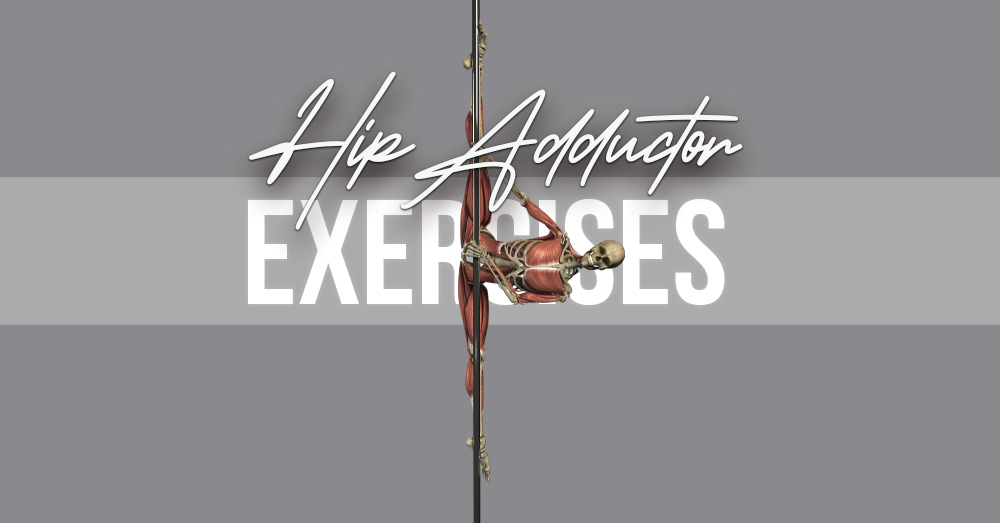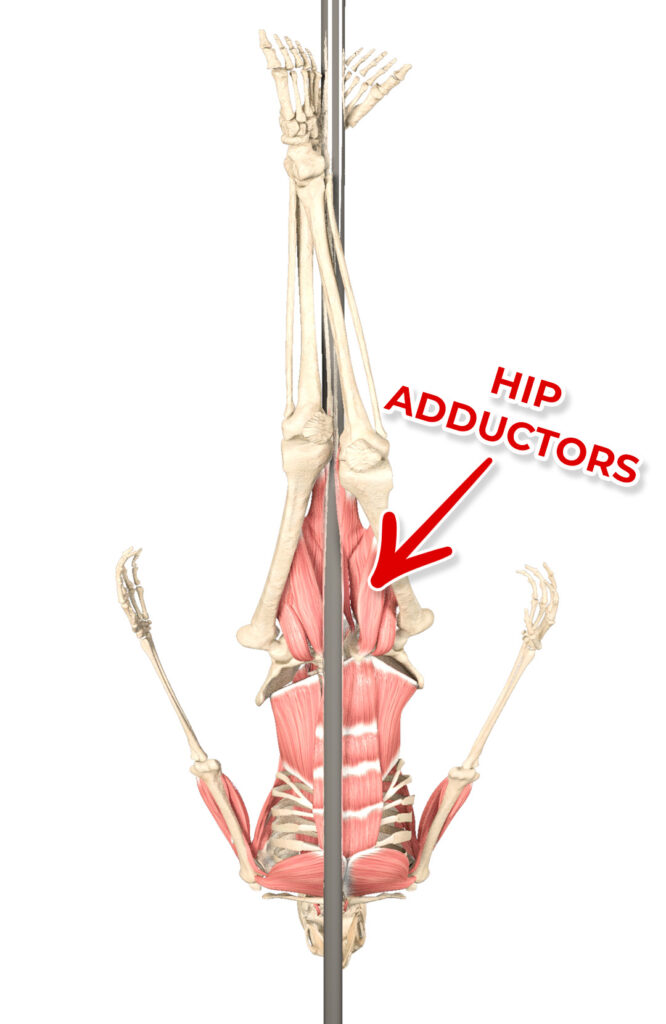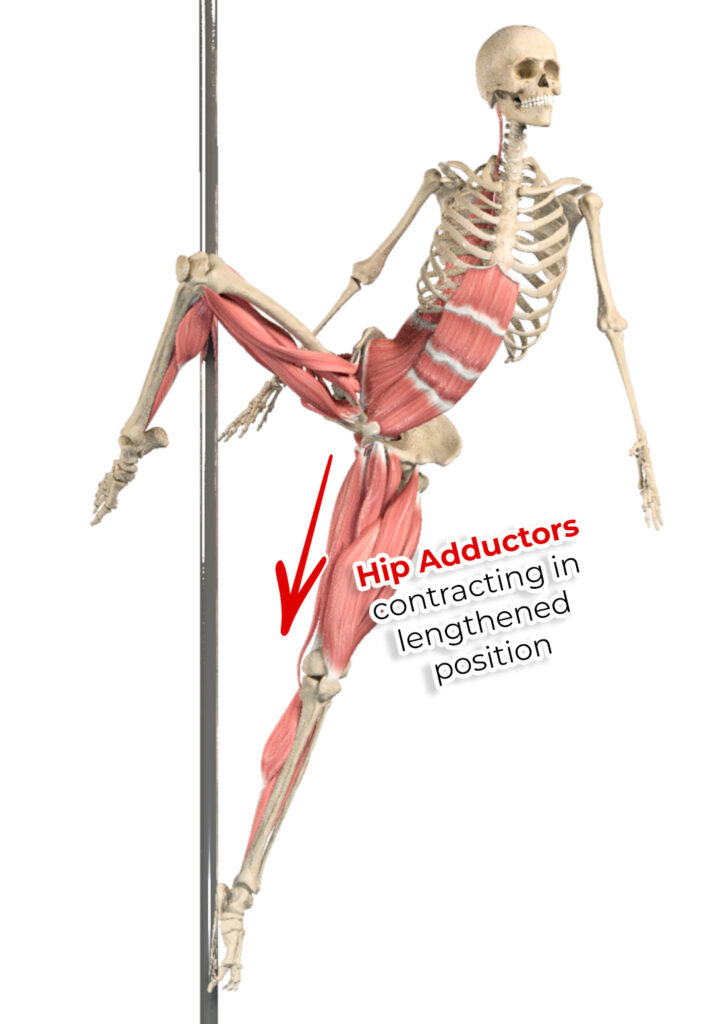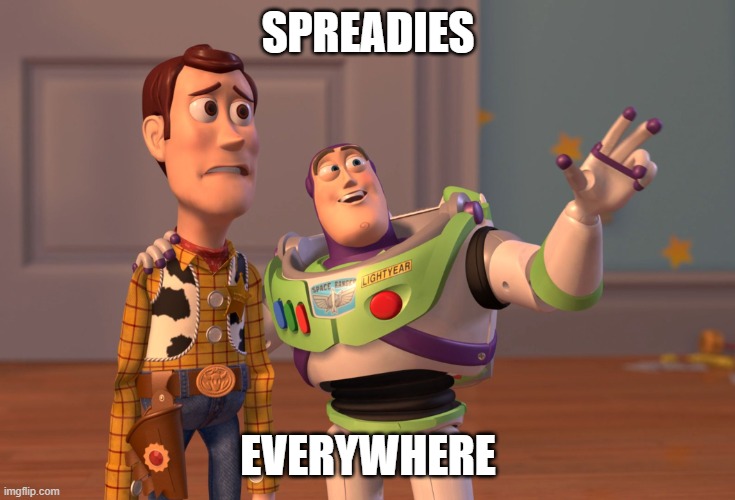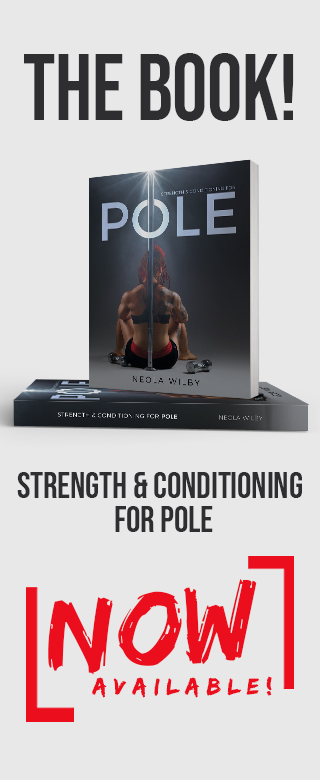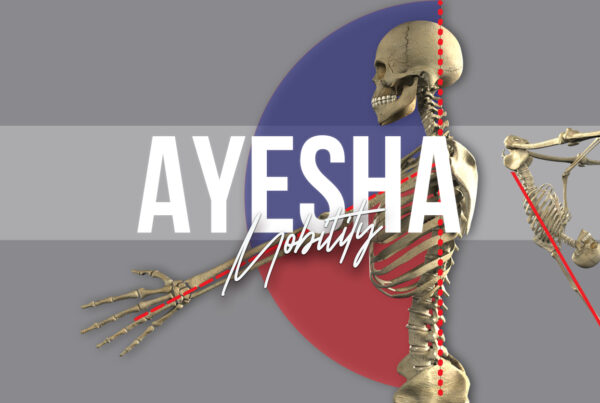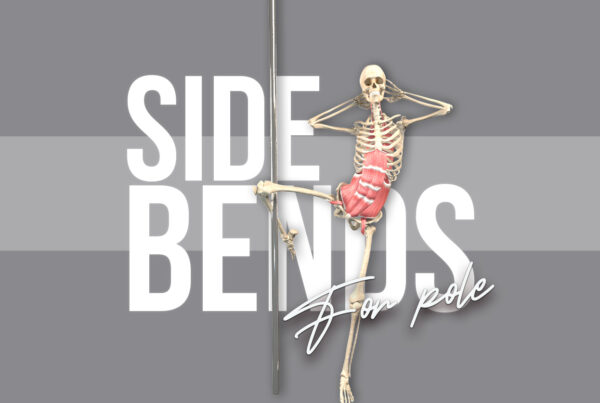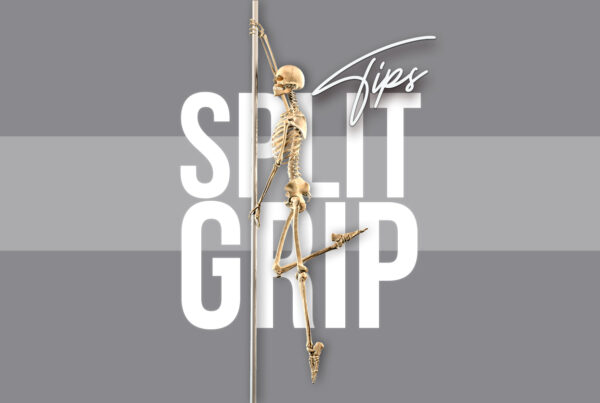Pole quiz!
Q: What do all these pole moves have in common?

(Side note: how cool are this little Top Trump style card graphics? We only made them for fun, so please don’t take the ratings as anything other than a bit of sillyness! 🤣)
Answer!
ANSWER: In all these moves, we’re using our hip adductors (our inner thigh muscles) to squeeze our legs together, helping to secure the main grip point!
Inner thighs of steel are important for pole dance – and not just for movements like these (where we’re using them to grip the pole between our thighs)!
We also need strength in our hip adductors for movements like Cupid and box splits on the pole where we’re engaging them in a more lengthened position.
But that’s not all!
If there’s one thing we pole dancers love, it’s a spreadie!
In all those straddles, pancakes and middle split based shapes we love to make on and around the pole, our hip adductors are lengthened, which means we need them to be hella flexible, too!
In summary, we need our hip adductors to be:
- Strong enough to hold our body weight on the pole when we need to use an inner-thigh based grip point. This is a concentric contraction to squeeze our knees together, then we usually hold that contraction isometrically while we hold the pose;
- Flexible enough to make all those spreadies to the Gods, combined with strength in the opposing muscle group (our hip abductors) to help us move into those positions actively;
- Strong in all those spreadie positions when our hip adductors are lengthened, especially for those moves where we are holding some or all of our bodyweight through our legs;
- Powerful and resilient enough to move in and out of the above positions, for example to suddenly grab the pole between our legs in a drop, or to move from gripping the pole between our legs into an end-range pancake or middle split position, often in quick succession (because, you know, we like to be dramatic about it)!
It’s quite the shopping list, right?! So how can we make sure our leg training for pole is setting us up for success in all these areas?
The good news is, we can work our hip adductors OFF the pole with concentric exercises, isometric holds as well working them through eccentric contractions (engaging the muscles as they are lengthening) to help build the strength and flexibility we need for pole.
It’s a muscle group that’s often overlooked in more traditional gym / ‘off the pole’ training, so if you know your hip adductors could use a little extra focus, here are a few of my go-to hip adductor exercises for pole dancers.
Hip adductor exercises for pole dancers
Exercise #1: Cable machine hip adductor
No cable machine? You can use resistance bands tied to your pole instead! Alternatively, you can do these side-lying using ankle weights. However, the bonus with the standing versions is that they work the standing leg, too, because that leg/hip is working hard to help stabilize!
Exercise #2: Adductor lift with isometric contraction
I love these side-lying holds that combine a concentric lift on the bottom leg with an isometric adductor contraction on the top leg! Helllooo adductors!
You can progress the isometric contraction by moving into a full side plank, but still focusing on pressing down with that top leg (+ bonus oblique workout… you’re welcome!).
And when you’re ready to go full ‘holy adductor’ mode, you can combine those two together (side plank and bottom leg lift), like so…
Exercise #3: Lateral squats
Lateral lunges / lateral squats are a great way to start building strength in the hip adductors in that more lengthened position we use on the pole. Here are a couple of variations…
Exercise #4: Middle split sliders
In this exercise, we’re working the adductors eccentrically (loading them while they are lengthening) and also holding the end point isometrically. It’s a great way to build both flexibility and strength through our end-range in this middle-split position.
Happy hip adductor training!
I hope this blog post has helped to throw a spotlight onto the hip adductors and the different ways we use them in pole – and given you some ideas for your own ‘off the pole’ training if this is an area you know you need to work on!
Here’s to building the strongest, flexiest hip adductors around!
PS. If you love nerding about training for pole dance, you’ll probably enjoy my book, Strength and Conditioning for Pole! Available now in paperback or ebook download!
Come join me on the ‘gram for the 90-second ‘quick fire’ version of my blogs! 👇
View this post on Instagram


